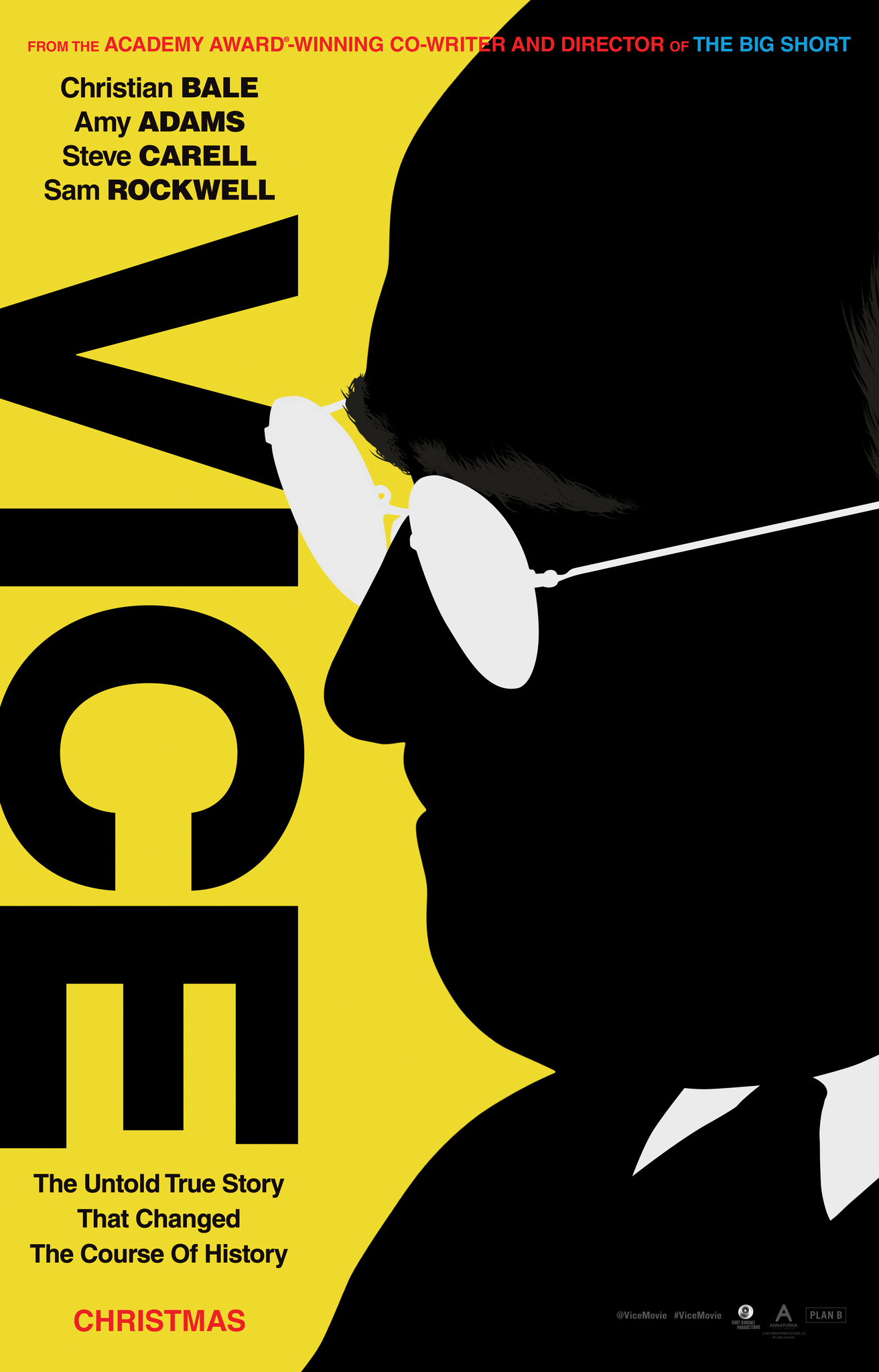Adam McKay’s Vice, a semi-comic film that chronicles the political ascension of Dick Cheney, very often feels like a leftist hit job. Yet, it is the film’s winking acknowledgement of this shortcoming that keeps it from devolving into a completely partisan take. For example, an opening title sequence tells the viewer that the filmmakers really tried to tell the truth despite Cheney being one of the most secretive leaders in US history, and a mid-credits scene devolves into a fight between film viewers over conservative versus liberal biases.
I personally take the movie’s allegations seriously but with a grain of salt; while I think it is certainly quite likely that some of the more outlandish parts really happened, I would be an idiot to believe all of the nonsense that is in there. In comparison, Daniel Ellsberg, the whistleblower who leaked the Pentagon Papers in 1971, told a coworker at the time of the release of Stanley Kubrick’s Doctor Strangelove–the classic 1964 satire of the nuclear arms race between the US and USSR–that its portrayal of the US losing control of its nuclear arsenal was in essence a documentary of how close the world was to nuclear armageddon. Through that lens, it might not be outlandish to say that someone somewhere who has worked with Cheney agrees with some significant license that Vice as a Hollywood film takes.
The decision to highlight Cheney’s role in the Bush administration — a decade after his departure from office — is interesting because the executive branch has continued to assert more power since Cheney’s tenure. As Vice points out, Cheney, likely the most powerful Vice President in US history, certainly helped accelerate this trend. The power of the executive branch has been most apparent recently in President Donald Trump’s decision to declare a national emergency in order to build a wall along the US border with Mexico. The influence of Trump’s presidency on Vice’s filmmakers is occasionally referenced. One scene highlights C-SPAN footage of three politicians advocating for the Iraq War as members of Congress. They later become major influences in Trump’s ascent to the Oval Office: Mike Pence, Jeff Sessions and Hillary Rodham Clinton.
Nicholas Britell’s soundtrack for Vice relies on counterpoint to convey a sense of dysfunction — epic orchestral soundscapes are interrupted by contrasting accompaniment from other instruments. Sometimes works of classic American music pierce through. Specifically, in one rather irreverent, false ending that muses on what Cheney’s family life would have been like had he not become Vice-President, the music seems to parallel the tune of “The Star Spangled Banner.” In another scene late in the film, the music seems to paraphrase the Disney fanfare “When You Wish Upon a Star.”
The film’s portrayal of Cheney’s rise to power from Yale dropout to Secretary of Defense for George H.W. Bush is excellent. Christian Bale’s character transformation from congressional intern to all-business Vice President is particularly noteworthy. Also Amy Adams’ portrayal of Lynne Cheney as the brains behind her husband’s rise to a progressively more powerful positions is well scripted and developed.
Unfortunately, the scenes focusing on Cheney’s life after serving as Secretary of Defense are rather disappointing. The film’s decision to already preview Cheney doing what we remember him best for — encouraging the Bush administration to go to war in Afghanistan and Iraq and using torture to interrogate enemy combatants — does not behoove itself to these scenes. They seem like a rushed and poorly written recap of what we have already seen. Barely any time is devoted to Cheney’s actions as CEO of the oil field service and equipment company Halliburton from 1995-2000, which would seem like a vital credit to the theory that the Bush administration invaded Iraq not because of flawed intelligence reports that Saddam Hussein’s government was supporting terrorists but because of its large oil reserves.
In contrast, scenes earlier in the film that reference Cheney’s dry bureaucratic approval of schemes to kill terrorists by bombing villages and torture prisoners for intelligence are immediately followed with visuals and sounds of those actions being carried out. It is a shocking gimmick that’s effective and brilliant in showing the awfulness of the policies this man advocated. Because of how shocking it is to suddenly hear and see warplanes carry out a bombing, the filmmakers were wise to use these scenes only a few times in the film. Viewing this film at the Garde Arts Center in New London, with its movie palace-sized screen and full surround sound system, the audience seemed to fly with the pilots of the planes as well–an effect that made the scenes brutally effective. Sometimes the audience would scream in horror at scenes like these and in other violent scenes like one about the infamous incident when Cheney shot a man in the face while hunting. Watching Vice with a larger crowd than I normally experience in a movie theater enhanced my experience of the horror that this film conveys. Overall, I think that the experience of viewing it at the Garde was good; however, given the film’s political dynamics and poor concluding scenes, I’m less sure about the value of viewing it in other venues. •










